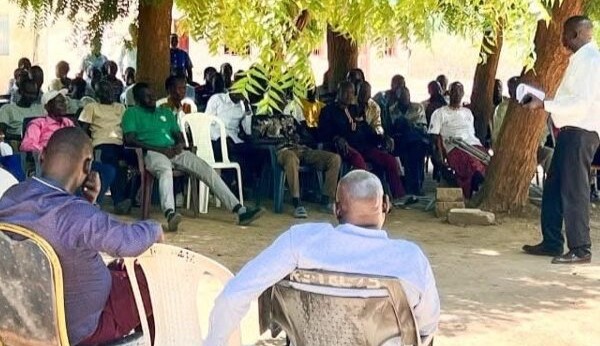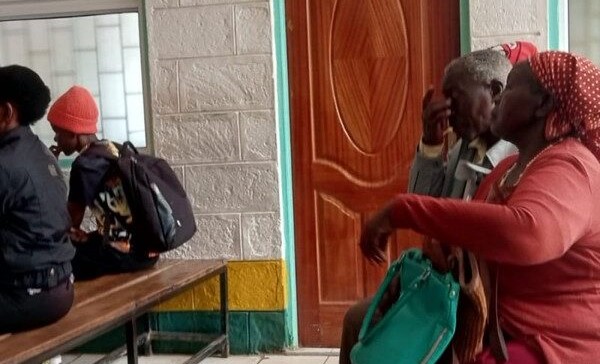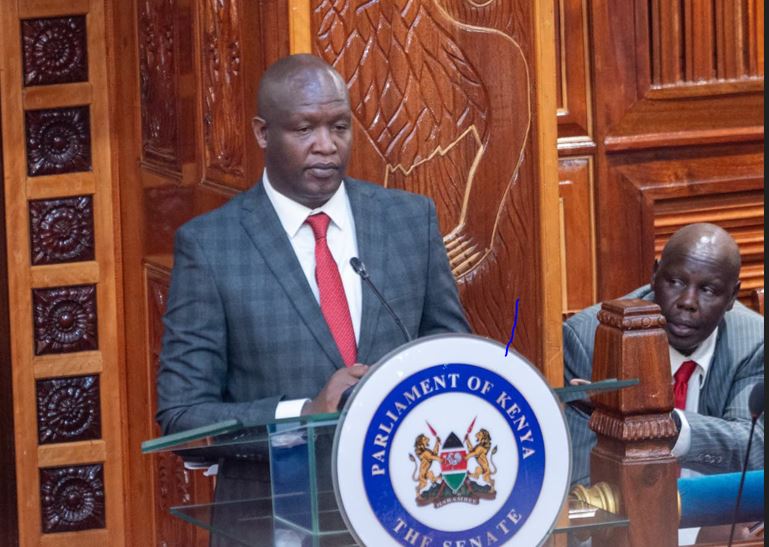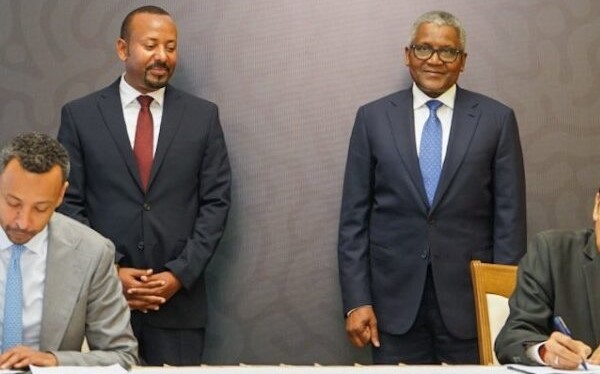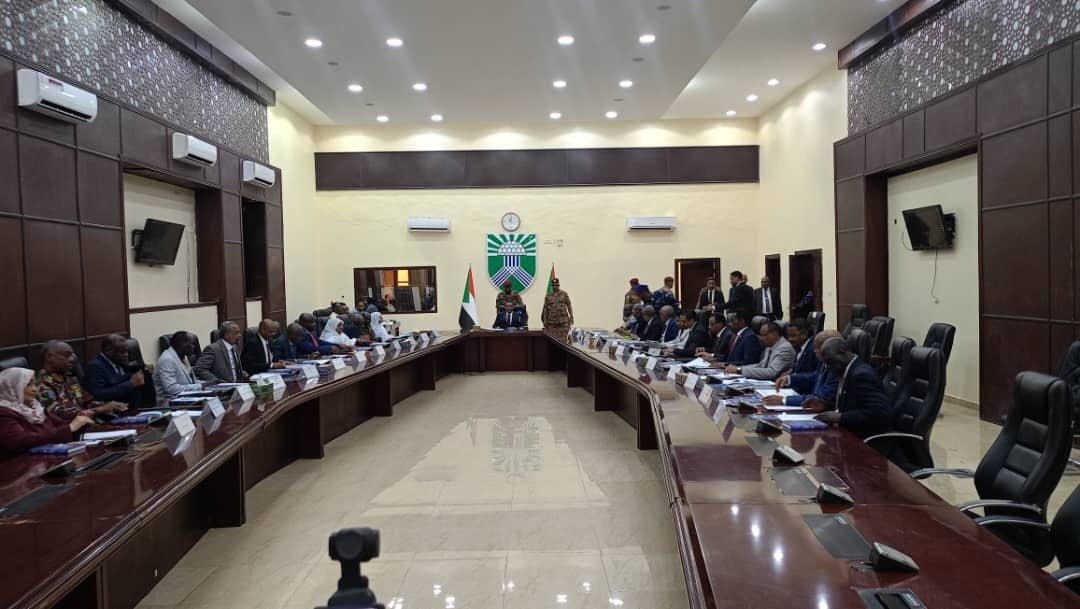Maisha cards voluntary but good for you -PS Bitok
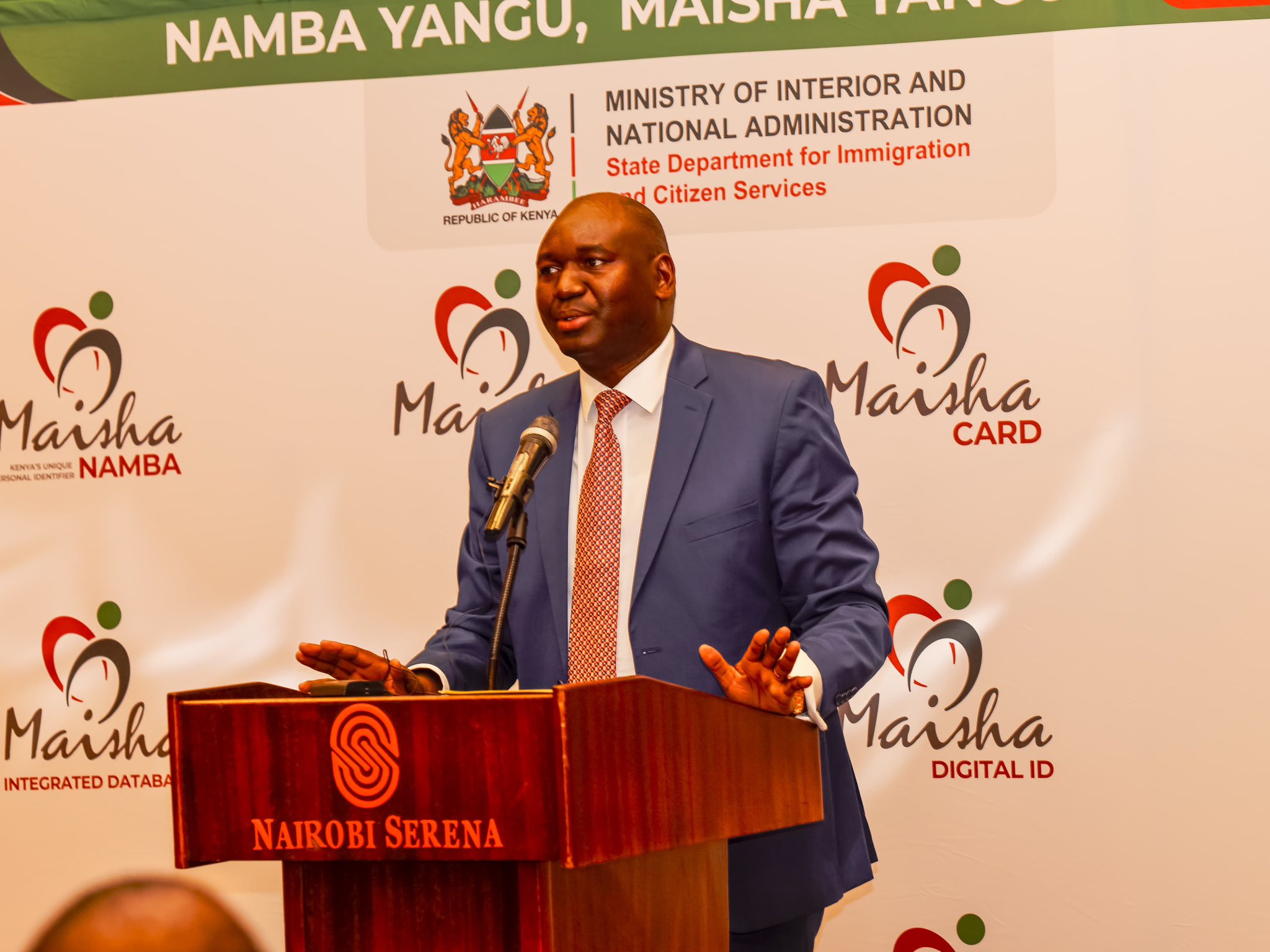
At the same time, the PS defended the 10-year expiration date on the Maisha Card as consistent with industry practices, international conventions, and the realities of technological wear and tear.
The government will not compel Kenyans to register for the new Maisha Card, nor will it tie its acquisition to the next general elections, Immigration and Citizen Services PS Julius Bitok has said.
Speaking to journalists at the Nairobi Serena Hotel after hosting a breakfast meeting with representatives from Civil Society Organizations (CSOs), religious leaders, the private sector, youth, and other special groups, the PS said the state agency will encourage Kenyans to upgrade from their current second-generation IDs to the Maisha Card, citing its superior features.
More To Read
- Education ministry launches county forums to address capitation issues, stalled promotions
- Free education here to stay- PS Julius Bitok clarifies after uproar
- KNEC unveils digital system that allows real-time certificate verification in bid to curb use of fake papers
- Government unveils CBE to replace CBC, promising skills-focused learning and 100pc transition
- CBC system: Uncertainty looms for Grade 9 learners amid school choice delays
- Ministry of Education to review regulations after Butere Girls' play incident
The PS further confirmed that the current IDs will remain valid and acceptable, even in the next general election.
"It is not the government's intention to compel individuals to apply for the Maisha Card. We want it to be voluntary, but it is advisable to consider obtaining it early," PS Bitok urged.
He dismissed allegations linking the introduction of the Maisha Card to a plan to rig the 2027 election, clarifying that the earliest the 10-year expiry date will take effect is in 2033.
"This assertion is unfounded. The first Maisha Card was printed in 2023. If you do the math, you'll see that the first card to expire will be in 2033, long after the next election," he explained.
The Maisha Card offers added user benefits, including a Maisha Number and biometric capabilities that align with international standards and global trends.
At the same time, the PS defended the 10-year expiration date on the Maisha Card as consistent with industry practices, international conventions, and the realities of technological wear and tear.
"The expiration of your ID does not diminish your citizenship status; it simply indicates that your ID needs to be renewed," he reassured.
The meeting focused on draft regulations for the Registration of Persons Amendment Rules 2024 and the Births and Deaths Registration Amendment Rules 2024. The amendments aim to streamline the Maisha Namba system and its supporting elements, including the Unique Personal Identifier (UPI), Maisha Digital Identity, and the Maisha Namba Database.
The regulations will also provide the framework for capturing new biometric features, such as the iris, that were previously not registered. Additionally, they seek to align the Maisha Card with counties as administrative units and as a means of identification as defined by the Constitution.
Other Topics To Read
Top Stories Today
